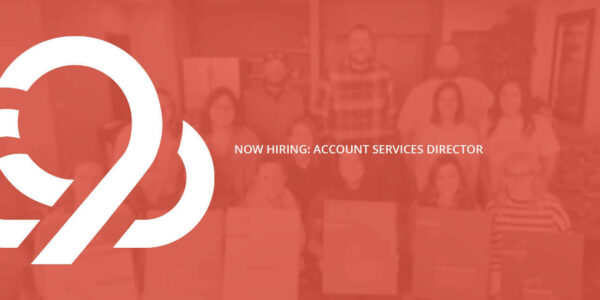
How Do You Know if SEO Is Actually Working?
It’s in our nature to question things. Without questioning things, we wouldn’t have developed into the world we are today. Questions such as:
- Why do we have to pay taxes on our tea? Bam! The United States was born.
- What happens if I put a key on a kite during a lightning storm? Voila! Electricity came into the picture.
- Why’d it have to be snakes? Nothing came out of this, to be honest. It’s just an Indiana Jones quote, but that scene instilled my fear of snakes when I was younger.
Anyway, it makes sense that people question the different functions of digital marketing. If you have been to one of those business seminars, you’ll hear questions from people in the crowd like:
- Will my business survive without being digitally present?
- What digital practices work best for making my company successful/known?
- What the heck is SEO?
- How do you know if SEO is actually working?
Which brings us to the topic of discussion: With so many things affecting web traffic, how do you know if SEO is actually working for your business?
The Easy Way to See If Your SEO is Working
Before we get into the nitty-gritty of SEO metrics, there is a simple solution to the question. Do a quick search to see if your business shows up on the first page.
Before you do that quick search, just a couple housekeeping things to make sure your search isn’t biased:
- Don’t just search your business’s name. Search the services that your business specializes in — what your potential customers will be searching — to see if your website shows up.
- Include searches with the words “near me.” Unless you’re a national company, you’re probably more concerned about whether or not you show up for local results. (Those are the visits that drive results.)
- Make sure your browser is in Incognito Mode or Private Browser Mode. That way, the search won’t be based on your past search history.
- Use this free SEO audit tool to see how your performance ranks.
Are You Showing Up for the Searches You Want?
So, are you showing up when you search?
It’s important to make sure that your business shows up with search results that pertain to the services you offer (and not ones you don’t offer). For example, if your business is a car dealership, you would want to show up in searches such as:
- Car dealerships near me
- New vehicle deals
- Used vehicles for sale
- Mechanic for [vehicle make and model]
- Oil changes in [your city]
If you are not showing up for searches that pertain to your business, you probably need to change up the keywords you have on your website.
Four SEO Metrics to Check If Your SEO Strategy is Working
You can find these important SEO key performance indicators (KPIs) using Google Analytics, Moz, Ahrefs, etc.
- Website Traffic
- Conversion Rate
- Keywords
- Bounce Rate
We go more in depth on these KPIs in another blog post, but here’s a quick rundown of what to check and why.
Website Traffic
It’s pretty self explanatory, but if your website is getting a lot of visitors, it usually means that your SEO is working properly.
However, web traffic doesn’t mean much if it isn’t leading to an increase in conversions. You need to check extra factors that go into that traffic.
Average Duration of Visits
Generally, the longer the duration, the better. That means they were interested in what you had to offer or your website provided a solution to the visitor’s query.
There are some instances where a short average duration is normal. For example, if you have a short landing page on your website, your visitors will have a shorter duration.
New vs Returning Users
It’s important to have new visitors joining your site. It shows that your SEO is performing well, but it is also important to retain visitors.
Returning visitors tend to convert at a higher rate than new visitors. Checking this KPI will give you a better understanding on how your site is performing. Tracking your visitors will show how effective SEO is working on attracting your target audience.
High Impression/Low-Click Pages
Most people haven’t heard about this KPI, but it is a great tool for figuring out if your SEO is working. High impression/low-click shows if you’re on the bottom of a search results page — meaning that your site is gaining a lot of impressions but not actual clicks to your website.
This metric is great to tell if the SEO tactics you put in place are working — and it can also help you make changes to your strategy to get more clicks to your pages.
Conversion Rate
An increase to website traffic doesn’t necessarily mean that those sessions led to sales on your site. This is where conversion rates come into the picture.
An increase in conversion rate means that people are finding what they were looking for on your site — which means that your site’s SEO is doing its job.
Keywords
If your website is using the keywords a searcher is looking for in the right ways, you should show up on those search results.
Let’s say you own a business called Carl’s Carpet Cleaning in Sioux Falls, SD. Your website should be using keywords such as:
- Carpet cleaning in Sioux Falls
- Affordable cleaning services
- Best way to remove stains from carpet
Make sure these keywords are in your site’s page titles, header tags and other important places on your site. And while you should incorporate specific keywords that apply to the services you offer, remember not to keyword stuff.
Long-Tail Keywords
Long-tail keywords are very specific searches that have a low search volume, but they make up a large percentage of searches when combined. An example of a long-tail keyword would be users searching “Certified Nursing Assistant (CNA) jobs in SD” instead of just “jobs.”
Simpler keywords like ‘jobs’ will be harder to rank your business because of how many results that come from it. Long-tail keywords like ‘digital marketing jobs’ can be easier to rank higher and get your business on that first page of search results.
Bounce Rate
Bounce rate helps you determine if visitors are finding what they were looking for on your site. It shows the percentage of visitors that leave your website after viewing only one page.
A high bounce rate isn’t necessarily bad. It all depends on the goals of that page on your site.
In general, though, if your site’s bounce rate percentage is decreasing, it means that your SEO is targeting the correct audience for the services you offer.
Why Your SEO Strategy Might Not Be Working
In the case that your SEO is not working, there could be a few reasons why it is happening.
Your Keywords Are For Google and Not For Your Users
One of the main reasons your SEO might not be working is based on your usage of keywords.
Is your website’s keywords optimized for Google or is it meant for users?
If your site isn’t meant for the actual users of your website, then what’s the point of using keywords? You should be writing content that is relevant to your audience, not Google.
In other words, write for user intent.
Answer their questions. Ask yourself what you want your users to get out of a page — What’s In It For Them? — and then give them what they want. Google is getting better and better at ranking websites based on the quality of their content and how well users interact with them. If you write for the user, Google will reward you.
There’s A Lot of SERP Competition
If you want to be at the top of your food chain, you have to realize that there will be other competitors trying to do the same thing.
Most likely, they are implementing the same strategy of SEO that you are using. Your competitors could also have a different approach towards their SEO, which might result in a change in your ranking.
A solution to overcoming your competition can be using more long-tail keywords to tailor your content toward search intent. (See our explanation above.) You could also study your competitor’s SERPs and web content to see if there are gaps that you can take advantage of.
SEO Takes Some Time
You probably have heard the old saying, “It’s not a sprint, it’s a marathon,” or “Rome wasn’t built in a day.”
It takes some time for search engines to trust you. They want to be assured that the content they’re putting at the top of their results is reliable. Generally, it takes roughly 6-12 months to see improvements from SEO.
Optimize Your SEO with 9 Clouds
If you don’t have the time to optimize your site and your reporting, talk to us. We have a strong team who specializes in optimizing websites and in showing clear ROI from your marketing efforts.
Ready to get started? See how your business can benefit from SEO.
Show Up With SEO »


![Human vs AI A/B Test [Spoiler Alert: Humans Win!]](https://9clouds.com/wp-content/uploads/2024/02/Volvo-dealership-1-600x388.png)


